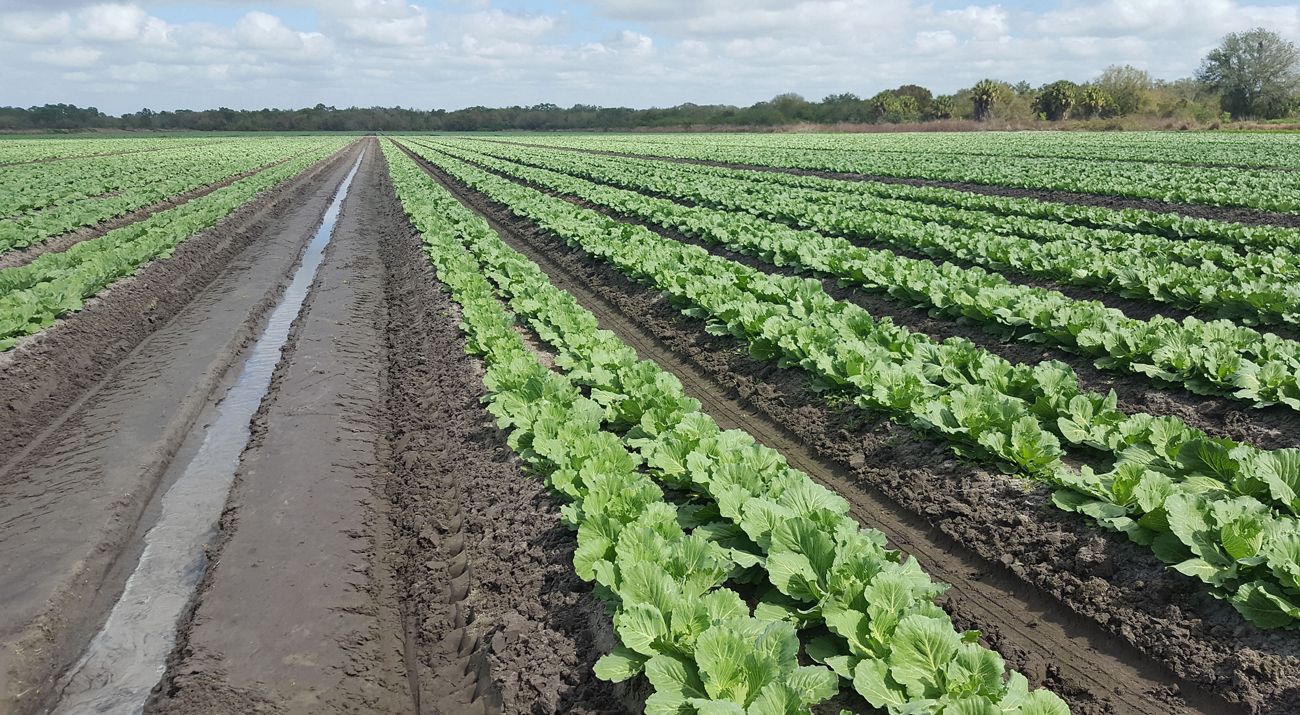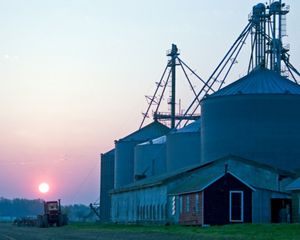4R Farming and Nutrient Stewardship
We’re helping Florida farmers keep harmful nutrients out of our water.
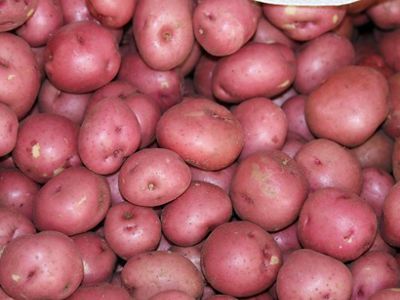
TNC works with farmers in Central and Southwest Florida to support the implementation of the 4R Nutrient Stewardship program, supported by The Mosaic Company, to promote sustainable and effective fertilizer use to keep nutrients out of our water sources.
What Are the 4Rs?
4R Nutrient Stewardship provides a framework to achieve cropping system goals, such as increased production, increased farmer profitability, enhanced environmental protection and improved sustainability.
To achieve those goals, the 4R concept incorporates the:
- Right source - Matches fertilizer type to crop needs.
- Right rate - Matches amount of fertilizer to crop needs.
- Right time - Makes nutrients available when crops needs them.
- Right place - Keeps nutrients where crops can use them.
The 4R Nutrient Stewardship program promotes methods that help ensure that nutrients used in farming end up in the plants and not in our fresh water, where they can impair water quality. For sustainable and effective fertilizer use, focusing on the 4R's makes all the difference.
Conservation Awards for Best Environmental Management Practices
TNC works closely with hundreds of farms throughout Florida to support the implementation of the 4Rs and other conservation methods to protect natural resources while producing quality crops. Several of the farmers we work with have received conservation awards from the state and other organizations.
Environmental Leadership Awards
The Florida Department of Agriculture and Consumer Services recently announced the winners of the 2022 Agricultural Environmental Leadership Award. The award recognizes environmentally innovative farming practices in Florida’s agricultural industry. The award recipients were honored for their efforts in the responsible use of nutrients, preserving water quality, wildlife protection, soil conservation and recycling. The innovative practices demonstrated by these environmental leaders help to mitigate the effects of climate change, while helping to preserve Florida’s natural lands for future generations.
We are thrilled to announce that TNC Florida trustee Lynetta Usher Griner of Usher Land & Timber is one of this year’s award winners, along with Brooks Garland of Lee Peanut Farms and Marlon L. Pendergrass of the Groves of Peace River. Meet the farmers and learn about their best management practices in the videos below.
4R Advocate Awards
Each year The Fertilizer Institute honors farmers who are using innovative and sustainable 4R fertilizer management practices to increase production and reduce their environmental impact. Poorly managed nutrient applications can decrease profitability and increase nutrient losses, potentially degrading water and air. The 4R Advocate Program has recognized numerous agricultural producers and retailers across the U.S. Over the years Florida has produced many winners of the 4R Advocate Award.
2022 4R Award Winner: Lee Peanut Farms - Lee, FL
The 2022 4R Advocate Award winner is Brooks Garland of Lee Peanut Farms, an operation that started in 2004 with 1,500 acres and has since grown to 12,000 acres. As the farm has grown, so has the use of the 4R nutrient stewardship management practices. Garland readily admits he’s always been a conscientious farmer and continually looks for ways to improve operations. “It all started by working with specialists from the University of Florida who helped us get 4R practices going on the farm,” Garland says. “David Royal with TNC also helped. What really opened my eyes were soil moisture probes. I started using those and began watering completely differently on corn and peanuts than I was before. I then realized that if you’re not using soil moisture probes, you’re watering off emotion.” He notes that yield has become more uniform and predictable since employing 4R best practices. Garland shares his 4R award with retail partner Keith Shaw, vice president of Mayo Ag Services in Mayo, Florida.
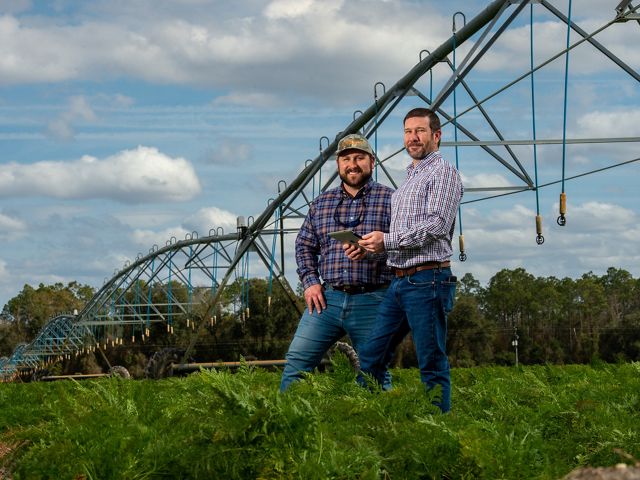
2020 4R Award Winner: Hundley Farms - Belle Glade, FL
The 2020 4R Advocate Award winner is Hundley Farms, a third-generation family farm located in Belle Glade, Florida. The Hundley family started farming in 1935 in the Everglades Agricultural Area, one of the larger contiguous bodies of organic soil in the world. The region is the primary source of winter vegetables for the eastern United States. The Hundleys are known for their progressive operations and are always willing to try new practices to help increase production and reduce environmental impact. They share their 4R Advocate award with their retail partner Wedgworth’s Inc., working with Hundley Farms to plan and implement sound nutrient management practices. Together they yield a sustainable and bountiful harvest on over 20,000 acres with sweet corn, green beans, radishes, rice, peanuts, cabbage and collard greens.
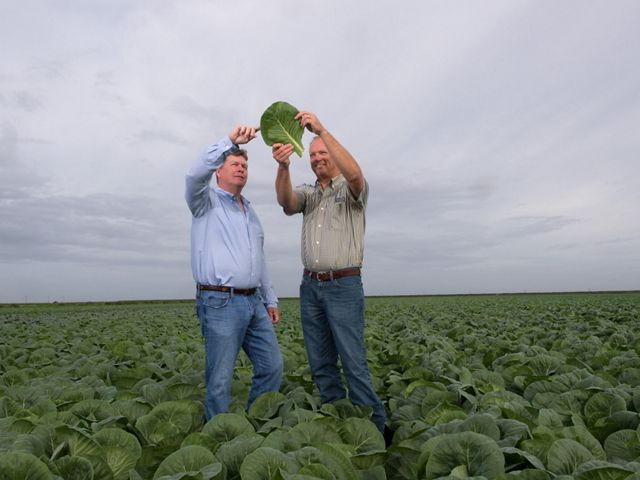
2019 4R Award Winner: Fancy Farms - Plant City, FL
Strawberry grower Fancy Farms, owned and operated by father and son team Carl and Dustin Grooms, received the 2019 4R Advocate Award, as one of the nation’s top five farmers in the country to receive this prestigious honor. As a 4R supporter, Fancy Farms uses cutting edge technology including soil moisture probes and leaf tissue sampling to make adjustments to the amount of fertilizer used on their strawberry crops.
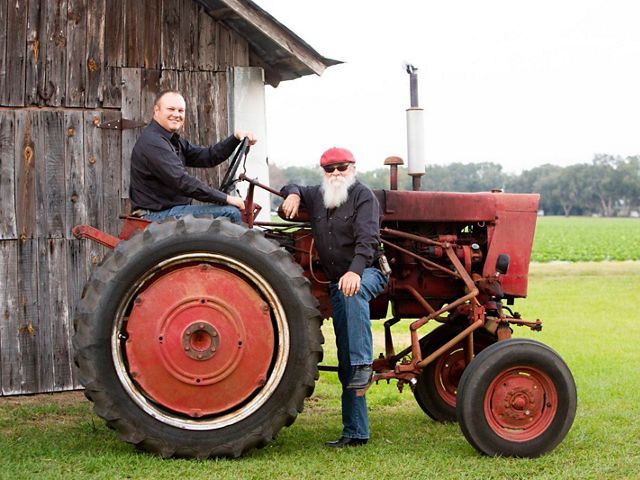
Past 4R Award Winners
- 2018: Beck Brothers Citrus in Windermere, Florida.
- 2017: Gary Reeder of West Coast Tomato in Palmetto, Florida.
- 2013: Jones Potato Farm in Parrish, Florida, the first Florida farmer to win the award. Jones was also honored with the 2016 Commissioners Agricultural Environmental Leadership Award as well as a Grower Achievement Award from American Vegetable Grower.
Quote: David Royal
That glass of orange juice you had this morning might’ve been a result of their hard work.
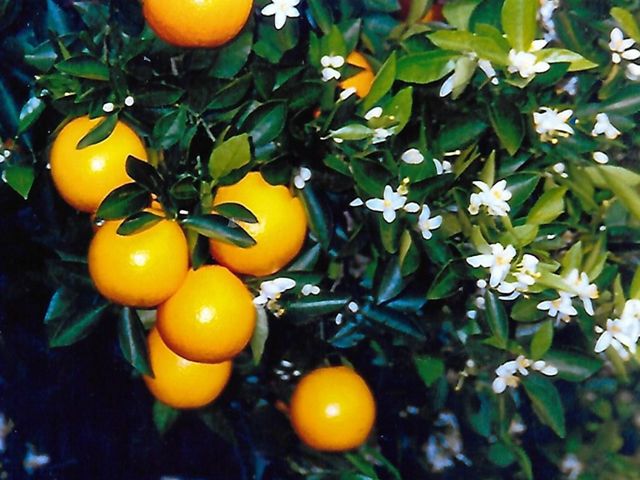
Farmers are Stewards of the Land
Florida’s agricultural industry is a driving force of our state’s economy, employing 1.5 million people. Florida agriculture supports the economy with $8.5 billion in cash crops and $4 billion in agricultural commodities exports.
As stewards of 9.45 million acres of land, Florida farmers must balance the demands of production with conservation concerns. Farmers contend with their irrigation needs—agriculture is one of the biggest water consumers—while conserving soils, supporting water quality, minimizing their water usage and protecting landscapes. TNC helps them by ensuring best management practices are used to support conservation and to prevent harmful nutrients from entering our water.
